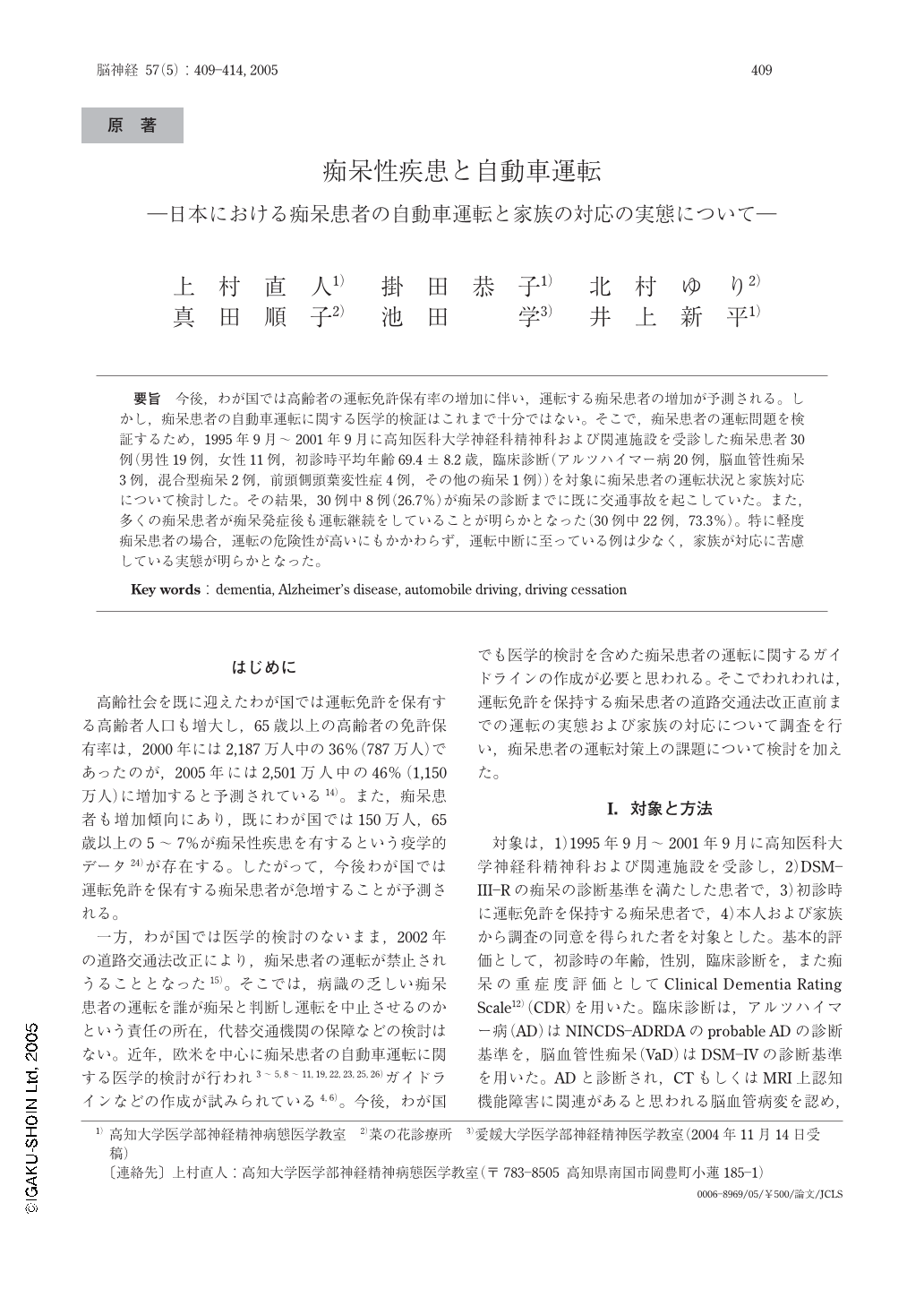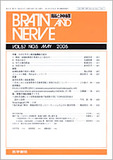Japanese
English
- 有料閲覧
- Abstract 文献概要
- 1ページ目 Look Inside
要旨 今後,わが国では高齢者の運転免許保有率の増加に伴い,運転する痴呆患者の増加が予測される。しかし,痴呆患者の自動車運転に関する医学的検証はこれまで十分ではない。そこで,痴呆患者の運転問題を検証するため,1995年9月~2001年9月に高知医科大学神経科精神科および関連施設を受診した痴呆患者30例(男性19例,女性11例,初診時平均年齢69.4±8.2歳,臨床診断(アルツハイマー病20例,脳血管性痴呆3例,混合型痴呆2例,前頭側頭葉変性症4例,その他の痴呆1例))を対象に痴呆患者の運転状況と家族対応について検討した。その結果,30例中8例(26.7%)が痴呆の診断までに既に交通事故を起こしていた。また,多くの痴呆患者が痴呆発症後も運転継続をしていることが明らかとなった(30例中22例,73.3%)。特に軽度痴呆患者の場合,運転の危険性が高いにもかかわらず,運転中断に至っている例は少なく,家族が対応に苦慮している実態が明らかとなった。
As a result of the growing proportion of drivers aged 65 years and older, it is estimated that the number of elderly drivers with dementia is increasing in Japan. Since June 2002, if a driver is found to be “demented”, his/her driving license shall be revoked in Japan. However, there are no consensus guidelines for demented drivers. Between September 1995 and September 2001, we evaluated 30 drivers with dementia (19 males and 11 females, mean age of 69.4 years) in out patients clinic of the Kochi Medical School Hospital and related hospitals. Clinical Diagnosis was Alzheimer's disease in 20, vascular dementia in 3, mixed type dementia in 2, frontotemporal lobar degeneration in 4, other type dementia in 1. We analyzed their driving behavior and family's attitude. Seventy-three point three percent of 30 drivers with dementia continued to drive after diagnosis. In follow-up periods, number of drivers continuing driving was decreased to 13(43.3%), while six drivers (27.3%) had a traffic accident or violation. Our study suggests that several important medical and social factors should be considered for the management of drivers with dementia. A consensus medical guideline for demented drivers has to be established.
(Received : November 14, 2004)

Copyright © 2005, Igaku-Shoin Ltd. All rights reserved.


